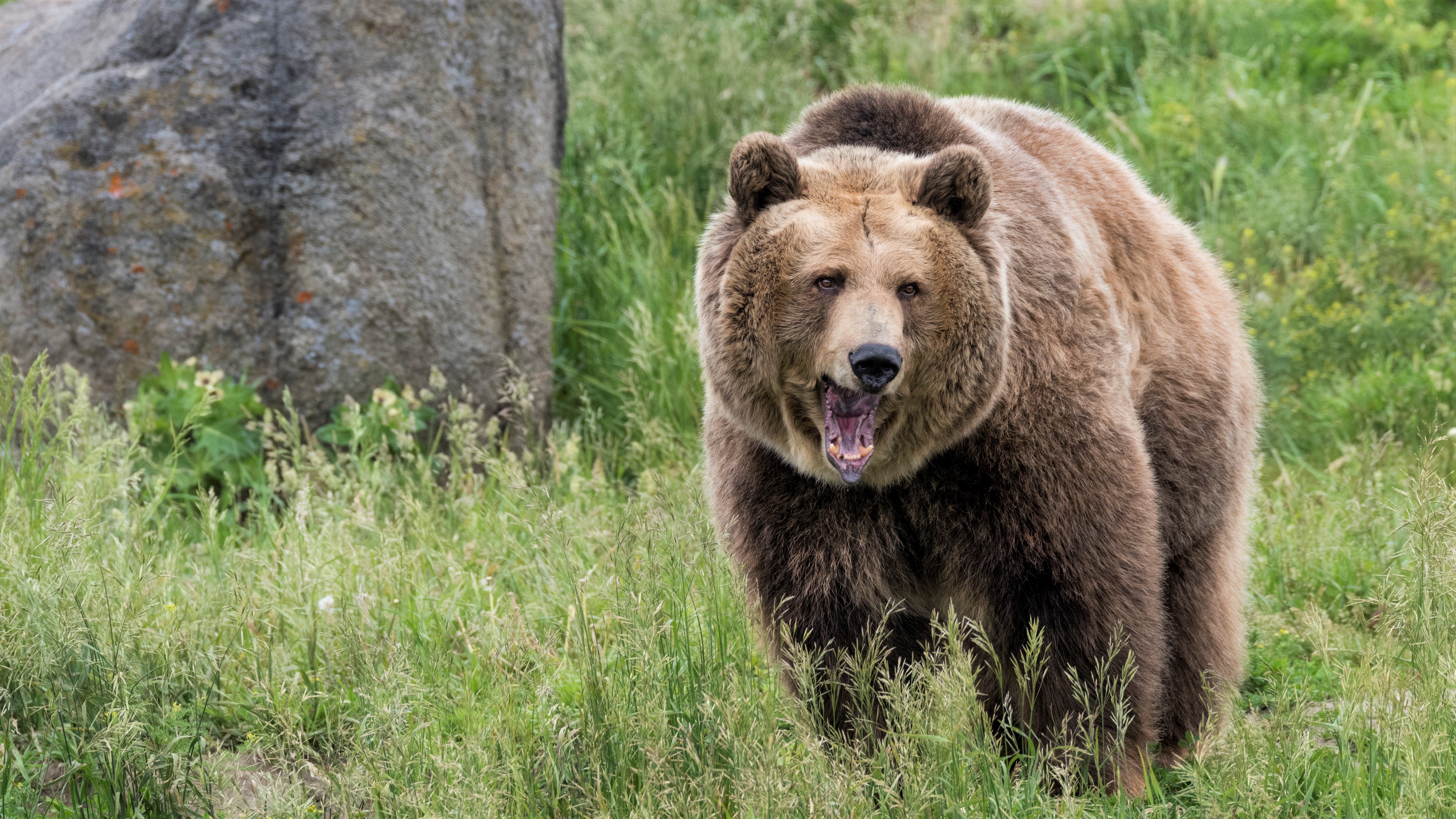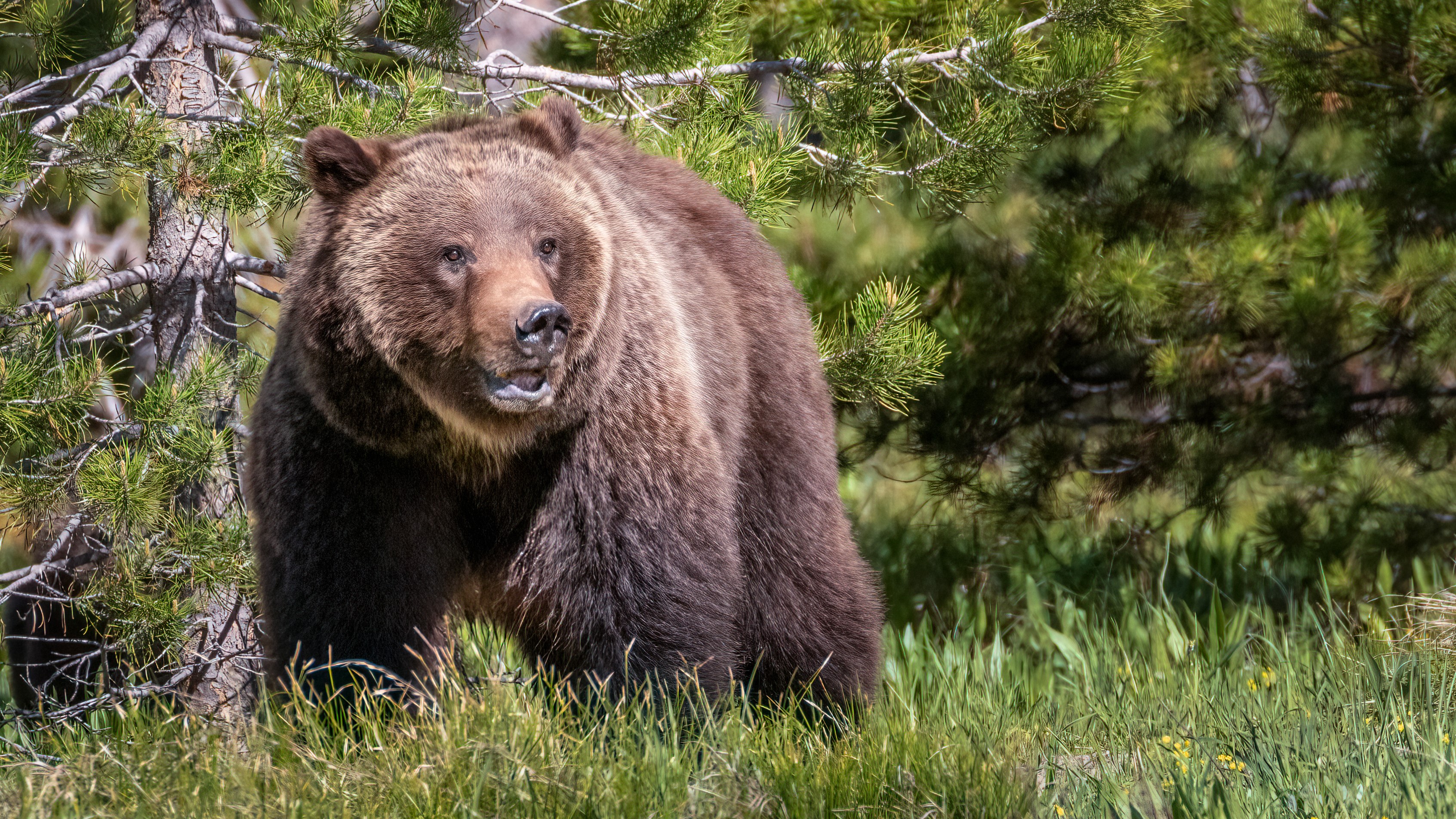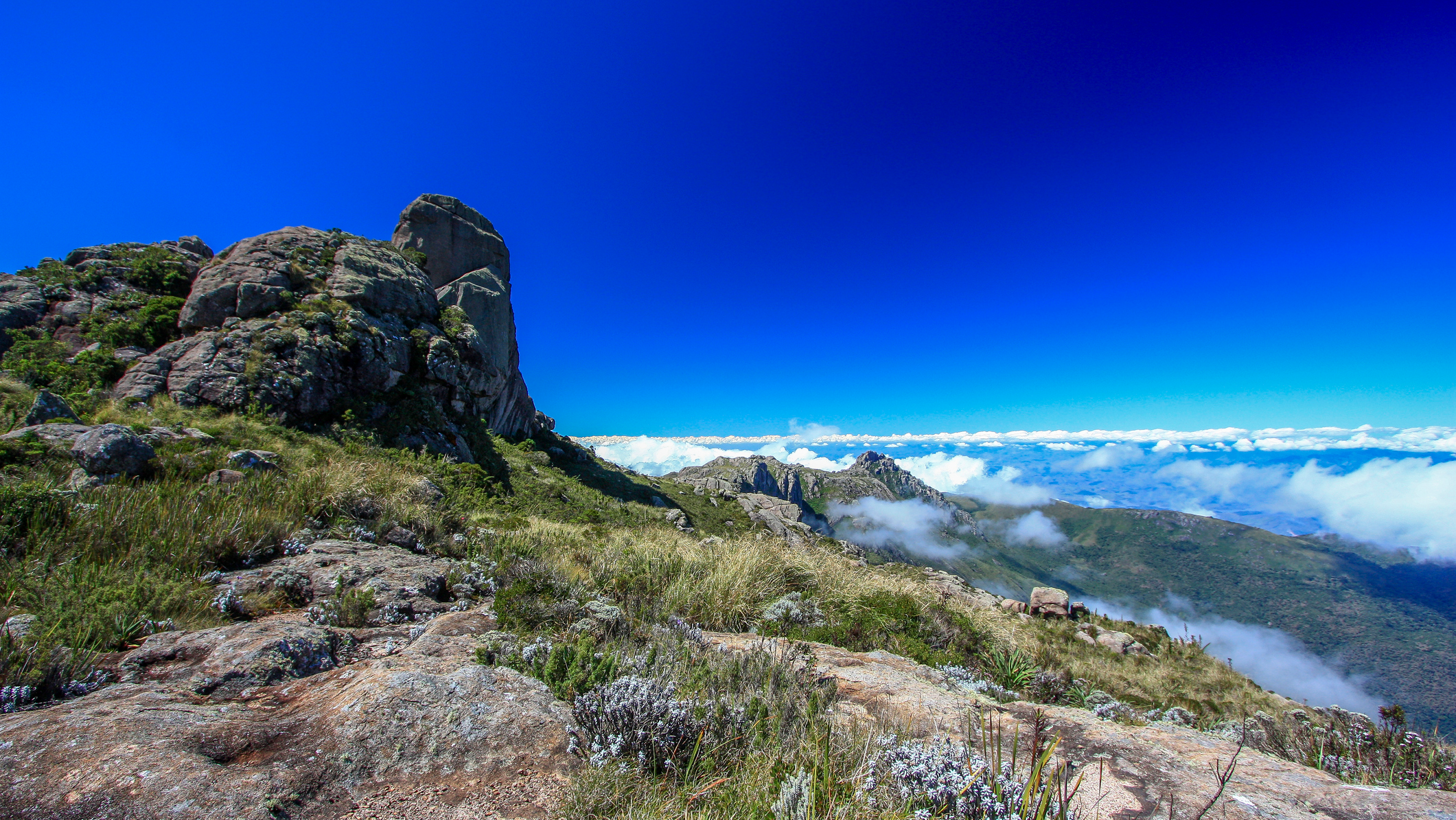"I just remember the claws digging into my back" – runner recovering after hair clip saves her during grizzly bear attack
Several bears have been euthanized following the June 30 attack

A Yukon runner who recently survived a grizzly bear attack has described how she thinks her hair clip played a role in saving her life.
According to a Facebook post from Yukon Conservation Officer Services, on the evening of Sunday, June 30, Vanessa Leegstra was running on the Trans Canada Trail connecting Pine Lake to Haines Junction with her dog on leash when she encountered a group of grizzly bears on the trail.
"While the individual attempted to increase space, their dog broke free triggering a defensive reaction from one of the bears. The bear attacked the individual resulting in significant injuries requiring medical attention," writes the YCOS.
Leegstra is recovering in hospital from where she spoke to CBC news yesterday describing the attack. She says her dog chased the female bears away, causing the male grizzly to become territorial and round on her. Leegstra says she attempted to hide behind a tree for protection but the bruin reached her before she made it.
"He grabbed my head and wrapped his paws around me. And I just remember the claws digging into my back. I could feel him biting my arm, my head."
However, Leegstra says she was wearing a large plastic hair clip which shattered when the bear bit into her head causing it to let go for long enough that she could get behind the tree. Her barking dog then distracted the bear, giving Leegstra enough time to escape onto the highway and call for help. In addition to a number of lacerations across her body and head, Leegstra suffered a broken arm in the attack.

YCOS reports that an officer was dispatched to the scene immediately where they euthanized a bear and closed a nearby campsite. Two additional bears have since been euthanized with efforts under way to recover the fourth bear.
Advnture Newsletter
All the latest inspiration, tips and guides to help you plan your next Advnture!
"We recognize the public concern around euthanizing bears following a defensive attack. In circumstances like this, critical decisions are made in the interest of public safety and the safety of personnel, in conjunction with predator attack response protocols, using all information available," writes the department.
For her part, Leegstra tells CBC that she was born and raised in the Yukon and understands wildlife safety and recognizes the risks of recreating in bear country.
"I already had a lot of respect for grizzly bears and now I have even a more profound respect for them," she says.
"I don't blame the bear and I don't blame myself or my dog. It just happened to be the wrong place at the wrong time."

Staying safe in bear country
If you're running, hiking or camping in grizzly country, it's important to know exactly what to do if you meet a bear to stay safe. If you are charged or approached by a grizzly bear, it’s best to leave your backpack on and play dead.
As scary as that might sound, it’s a defensive maneuver to help keep you as safe as possible. Lie flat on your stomach with your hands clasped behind your neck. Spread your legs to make it harder for the bear to turn you over. Remain as motionless as possible until the bear leaves the area.
Fighting back usually increases the intensity of such attacks. However, if the attack persists, fight back vigorously with whatever you have at hand – a branch, rocks, one of your boots – to hit the bear in the face. Learn more in our article on what to do if you meet a bear.
Julia Clarke is a staff writer for Advnture.com and the author of the book Restorative Yoga for Beginners. She loves to explore mountains on foot, bike, skis and belay and then recover on the the yoga mat. Julia graduated with a degree in journalism in 2004 and spent eight years working as a radio presenter in Kansas City, Vermont, Boston and New York City before discovering the joys of the Rocky Mountains. She then detoured west to Colorado and enjoyed 11 years teaching yoga in Vail before returning to her hometown of Glasgow, Scotland in 2020 to focus on family and writing.

